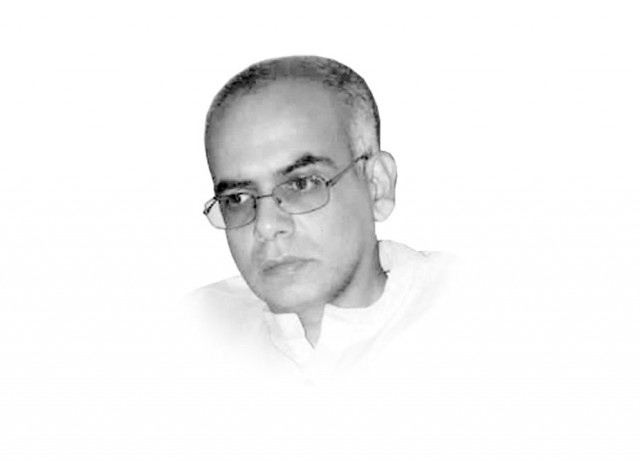Financing the humanitarian aid gap
Since majority of conflict-affected populations are in Muslim states, role of Islamic finance needs to be highlighted

The writer holds a PhD from the University of Melbourne and is the author of Development, Poverty and Power in Pakistan, available from Routledge
Around 125 million people are left destitute by war and natural disasters. Such man-made and natural disasters have compelled people to become displaced and dependent on humanitarian aid. Displacement itself carries the risk of growing security threats, increased xenophobia and social fragmentation — issues which have come to the fore since the current refugee crisis in Europe.
In order to address this challenge, the UN secretary general recently appointed a team of experts to report on how to reinvigorate the humanitarian aid system through reform and identification of new sources of funding. According to this panel, the world already spends roughly $25 billion to deal with humanitarian issues, but at least another $15 billion is needed. This is hardly an impossible target given that the world is presently producing $78 trillion in terms of annual GDP.
The UN experts have provided some concrete fundraising suggestions to reinvigorate humanitarian financing. Given that the vast majority of conflict-affected populations are in Muslim countries, the role of Islamic social finance has been highlighted. Waqf, zakat and other instruments such as sukuk bonds are mentioned, which could potentially be channelled to meet humanitarian needs. Zakat alone is somewhere between $300 billion and $500 billion a year. Yet, whether these countries would be willing to relinquish control over these funds, and allow them to be funnelled towards humanitarian purposes under the purview of the UN system, remains to be seen.
Given how remittances to the developing world help people meet their basic needs, the UN panel noted some money transfer agencies lowered their commission rates in times of crises and encouraged others to follow suit. The panel also advocated the creation of a voluntary solidarity levy. Other suggestions included micro-levies on air tickets or on gasoline. However, the idea of using taxation to raise more humanitarian funds is not something that would be popular with the public at large.
The panel suggested that big business should play a larger role in the humanitarian system, helping manage risk and modernise aid transparency. Given the profit-driven modus operandi of business entities, and their use of exploitative global supply chains, which do much to undermine resilience of poor households, expecting them to make a selfless contribution to support humanitarian efforts seems a bit naive.
Investing more in development is, however, rightly acknowledged as the best resilience-building and disaster-risk prevention strategy, and the UN panel did make some useful suggestions to increase the efficiency of the existing aid architecture. For example, the panel urged donor agencies to give more cash-based aid, and allow local organisations more say in how this aid is used. Right now, NGOs chasing after donors leads to much wasted effort. The creation of a repository of pre-qualified organisations could dispense with repeated screenings of NGOs and make the process of channelling aid to trustworthy organisations less cumbersome.
Perhaps, the best way to contend with the growing humanitarian crisis is to address some of its root causes, including the problem of global warming and man-made conflicts, many of which are being fuelled by proxy interests. While the UN panel itself did not allude to realpolitik machinations, it did reiterate the need for increased funding for the United Nations Peacebuilding Fund. It would have been even better if the UN peacekeeping forces were able to deploy based on genuine humanitarian needs, rather than having to await a nod from the select membership of the Security Council.
The business-as-usual model for humanitarian aid will not suffice. If current trends continue, by 2030, the cost of humanitarian assistance would have risen to $50 billion and 62 per cent of the world’s poor may be living in fragile and conflict-affected countries. Besides the unimaginable human suffering that would be implicit to such a scenario, the global ramifications of such a humanitarian disaster would become untenable, no matter what part of the world one belongs to.
Published in The Express Tribune, January 23rd, 2016.
Like Opinion & Editorial on Facebook, follow @ETOpEd on Twitter to receive all updates on all our daily pieces.













COMMENTS
Comments are moderated and generally will be posted if they are on-topic and not abusive.
For more information, please see our Comments FAQ